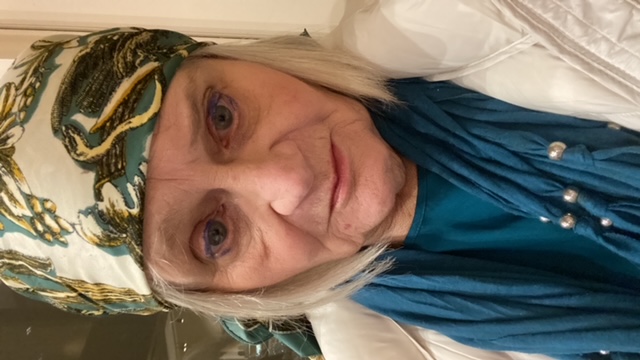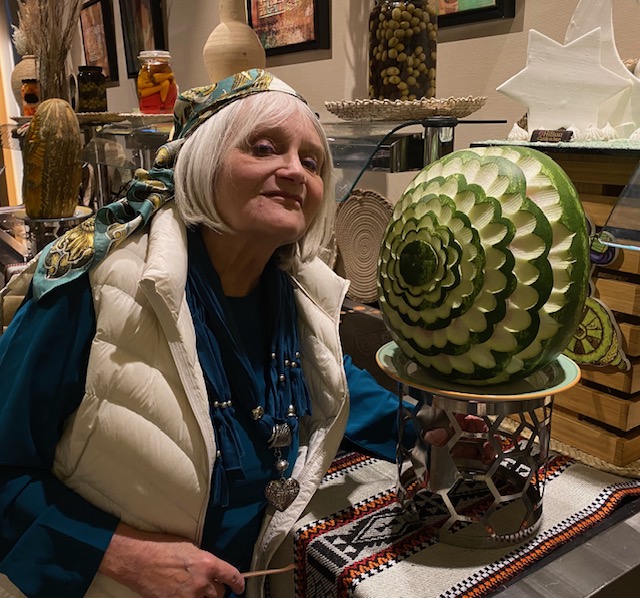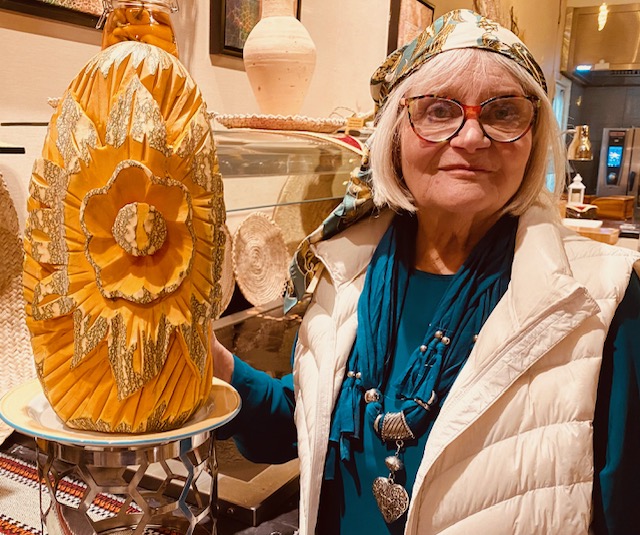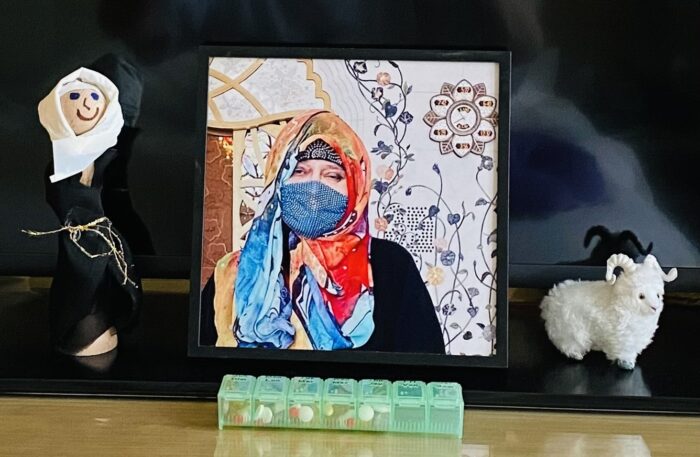The strange phenomena that happens to me, happened yet again. I cannot get the words of a song out of my head. The words of a song kept reverberating in my head; ‘Take Good Care of Yourself; You Belong to Me.” Googling the words fount the name of the song is actually Button Up Your Overcoat. Here are some of the lyrics.
Button up your overcoat
When the wind is free
Take good care of yourself
You belong to me
Eat an apple every day
Get to bed by three
Oh, take good care of yourself
You belong to me
Be careful crossing streets, ooh, ooh
Cut out sweets, ooh, ooh
Lay off meat, ooh, ooh
You’ll get a pain and ruin your tum-tum
Wear your flannel underwear
When you climb a tree
Oh, take good care of yourself
You belong to me
The song written by Ruth Eating ends on a funny note, revealing that it was written at the time of Prohibition.
Keep away from bootleg hooch
When you’re on a spree
Oh, take good care of yourself
You belong to me.
Always when you look at the words of a romantic song, it is best to substitute Allah (SWT) for the ‘romantic partner . The results will prove more lasting. This song is not exemption, the further I examined the concept of taking care of oneself I found that I was definitely onto something.
When one is onto something you have done or discovered something important, something that could lead to a good result.
I learned first of all that loving and taking care of yourself means paying attention to your needs in daily life. This includes practicing emotional well-being through self-reflection and mindfulness, as well as making choices that help to bring you joy and enjoy life. It is not as simple or as easy as it might appear to be.
- Real self-care is choosing to create a life that you don’t feel the need to regularly check out of.
- Self-care means doing things you initially don’t want to do, and making the choice to do what’s uncomfortable.
- Self-care is allowing yourself to be normal and average, instead of always pushing yourself to be perfect or exceptional.
The Islamic Faith holds the key and shows the pathway to self-care. The Faith values self-care, explaining its importance: “Allah (SWT) entrusts us to take care of ourselves first and foremost and maintain a constant connection to Him. As it is when we can look after our own through His Guidance that we can also care for others – our community and Allah’s (SWT) creations.
From another source I learned:
Self-care is a crucial aspect of the Islamic faith. It is incumbent upon every Muslim to care for him or herself as a way of showing gratitude for the blessing of health and wellbeing that Allah (SWT) has bestowed upon them
On the twelfth day of Ramadan I formed the intention to practice self care. It was done in many ways, on the second Friday of Ramadan. Better organizing my belongs, ironing some clothes, fixing the doll I made at the Ithra Children’s Museum (her head fell off) , organized daily medication in the pill container, edited some photos.
Most importantly, focused on matters of the faith, continuing with quotations from the Preface of Fasting for Ramadan.
“ Of course there is always traffic between reflection and expression, as between the mind and the body; between God and human, between past and present, between the external system of the world and the internal systems of the so-called self.
Why two books belong between the same covers, why two books are really one book, and why the later ism first and the earlier second.
Because on Eid-ur-Fitt, the celebration of the end of the fasting month when traveling to the mosque for for special prayers you are supposed to take one route going =, and another different route going home. KA 21 Ramadan 1431.
I begin reading, playing catchup as the author begins with Day 1 and time has marched on. I am behind the times.
I discover, with sheer delight, that Ali’s language is most poetic.
“Growing up, fasting was my favorite spiritual practices; it still is, although arduous. One feels, at the end of the day of fasting, like a tree branch or a bone bleached in the son.” This too, “Tell me the difference between entity and eternity.”
He shares his third day experiences: “So much energy in the morning. Last night I wilted, exactly like a flower without water. Remembering those slow motion videos I had seen of flowers a vase. Which show that over a course of three or five days cut flowers thrash. (Ali, pg,14).
Ali searches his memory to find meaning,
“And I remember one of my favorite verses”Even if all the trees in the world were made into pensant all the oceans made into ink, with seven more oceans to multiply them still the words of God would not come to and end.” (Luqman,27) Even in the the moments I most doubted, I have loved this verse. Because it is precisely about doubt. If the words are eternal then the reading must be , too. God, the master of efficiency, hardly repeats himself. Even in the Quran, when a story is told a second time, it is told differently. (Ali pgs. 15-16)
On the fifth day of his fast he wrote: “Fasting teaches you this: you have to move slowly; you have this moment, and this moment alone holds the entire universe.” How true this is – find myself moving most slowly, most deliberately, one step at a time. .
H speaks of his notebook of two years ago. I totally identify with this when I read my blogs of former years and confront the old me, almost unrecognizable. “My notebook of two years ago drifts, a trail of consciousness, a record of a person who does not exist anymore. But also (of course) does. The self and the self-that-was, or the self-that-will-be, all planets revolving around the same sun?” Which is the sun and which is the planet? (Ali, pg. 21).
On the seventh day of the fast he spoke of the many different paths he could have taken in his life. I often wrestle with this in wonderment. “Now what I mean is a multiple different personalities of life happening right now. The me who woke up late and did not fast at all. The me that decided not to move to Oberlin after all. The me that never went to New York, The me that didn’t switch his major at college and continued to study politics and went on to go to law school.” Where did all those Kazoos end up? Are they happy? Though I am content with my life at the present time and wish for no other, I supremely hope that that no matter what choices I made I still would have found happiness. And if this is the case, our happiness does not depend on our physical condition or our temporary state-of-being; that it comes from another source? I know this much: I can only live my own life, live it truly, trying to take make “one time” now.”
Again I totally identify with this thinking, examining the different paths I could have taken. The me that stayed married to the first husband. The me that did not, at the age of 36, go to law school. The me that did not insist on separate property prenups. The me that did not adventure to London in 2013, the move that drastically changed my whole life. Where did all those Alexises end up? Are they happy? I am most content with my own life and wish no other. I cannot even imagine though, a me that did not become of the Islamic Faith.
This phrase strikes a chord. “And in Islam it is intention, even more than action, that determines the fate or karma, or fatal effect, of any given action.”
Strikes a chord to If something strikes a chord it causes people to agree with it, approve of it, remembering something else because it is similar to it. Striking a chord elicits, enkindles, evokes, fires a positive response.
Immersing myself in Ali’s superb writing does not necessarily led me on my own path because there are vast differences between Ali and me. His first fast when he was nine years old, he has fasted with his mother. “Fasting was something we shared, a secret between us.”. But it is o great comfort to see that despite the vast differences we face the same obstacles, the same weaknesses within ourselves and struggle to persevere. I plan to catchup within the next couple of days so that we can walk together.
Ali is not my only companion during this Ramadan. I corresponded throughout the day with Noor. WhatsApped:
Me: You seem to be with me during this Ramadan my Sister. We are doing this together.
I had written.
Me: So the hardship of being so sick brought the benefit of appreciating my good health at the moms,
She: Salam n good Beautiful Friday morning. Alhamdullah that we are in excellent health and happy
Me: I am so happy with myself and you dear Sister.
We then exchanged loving emojis.
This is written on the next morning. I gather my thoughts, do some editing and will now find photographs that will portray the prior day and reveal the post writing events. One photograph shows the ‘fruits of my labor.’ My repaired Fatimah doll, the pill container and other paraphernalia. Other photos taken at Iftar dinner – reaching many compliments on the color my abaya. One man, commenting on my head gear, I suppose said:
He: You look like a hippie.
Me: I was there at the time but did not look like one them
The Royal Photographer took photos of two exquisitely carved melons and me. You should be able to figure out which is which. One rather unflattering photo shows that my eyes turned the same color as my abaya. I rather forgot that they have this rather uncanny ability. The prize photograph is of the unusual sunset of last evening. Clouds hid the sun but the reflections were stunning.




